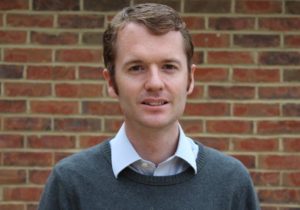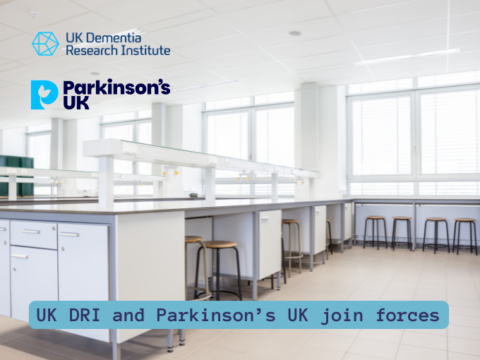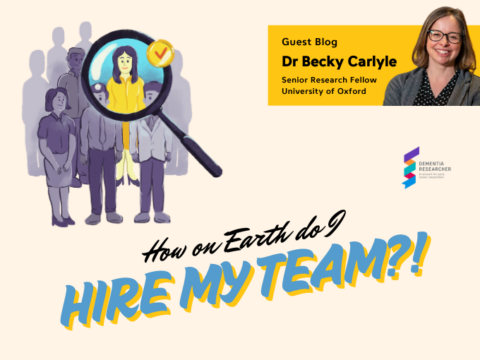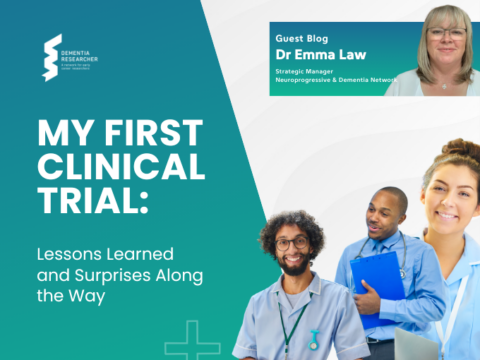Barcelona in the Autumn! Not the sunny skies and warm evenings I was hoping for, but rather grey skies and terrific thunderstorms. However, the lightning wasn’t the only things lighting up the city; the arrival of 800 people for the Alzheimer Europe conference produced a series of highlights and headlines packed in to two busy days.
I have been to this conference for the past 3 years and it always impresses me how it attracts people from every field dementia. Although there may be relatively few basic scientists, there were physicians, psychologists, ethicisits, nurses, advocators and people with a diagnosis of dementia. This was particularly reflected in the broad scope of the poster sessions, which were packed at each break on both days.
The programme focused on brief presentations, rarely longer than 20 minutes, with 4 plenary sessions and the remaining being parallel sessions. As always at such events, the challenge is to choose between different parallel sessions. They were carefully with broad themes in a single room running across a whole day which helped to some extent.
From an early career researcher perspective, the conference was a great success. Alzheimer Europe made a conscious decision to have an early career research give the first presentation at each plenary session called “Meet the researchers of tomorrow”. This gave young researchers a platform and I think helped to keep the sessions fresh and exciting. I would have expected this might end up in one or two lower quality presentations, but I was genuinely impressed by the quality of all the talks from the early career researchers. Anja Leist from Luxembourg gave the first of these on the work of the World Young Leaders in Dementia (disclaimer – until recently I have been on the steering group of WYLD, please check out our website at wyldementia.org). Stina Saunders from Edinburgh gave an excellent summary of her work with the EPAD project, in particularly the impact of disclosing biomarker results to people with Mild Cognitive Impairment. Sebastien Libert from Belgium gave the programme a technical flavour with his discussion of assistive technologies and their potential pitfalls and advantages in the Interdisciplinary Network for Dementia Using Current Technology (INDUCT) consortium. And finally, Isadora Ales Lopes from the Netherlands spoke about the role of amyloid PET imaging in early diagnosis of Alzheimer’s disease, highlighting that in it lead to a change in early disease management.
There were no big announcements at the conference, but more an incremental advance in many areas. Large collaborative efforts were starting to present results rather than plans, such as EPAD (to test early disease modifying therapies in novel trial designs) and Roadmap (to define patient reported outcomes for use in clinical trials). However, these were preliminary results based on pilot data rather than definitive final results. I look forward to hearing more at future meetings.

Stina Saunders whose work addresses whether people
with mild cognitive impairment should know the results of biomarker
tests for Alzheimer’s disease.
The session I most enjoyed was the oral poster session. This was a quick-fire series of 10 minute presentations. What most attracted me about this session was that it gave a platform for people working on the front line of dementia care to share and discuss their innovative approaches and their difficulties. These covered very practical challenges, such as an overview of GP’s discussion of driving with people with dementia in Ireland from Tony Foley – I recognise many of the issue he discussed, such as reactions of anger and the need for a good relationship prior to such a discussion. Other presentations surprised me (in a good way!), such as a survey of the positive aspects of becoming a carer for a family member with dementia from Carolien Smits in the Netherlands, in that people like spending more time together and focus on small moments of joy. I even bought a present for one our dementia nurses on the back of a presentation from Nicola Wyllie of Nottingham who has worked with renowned cartoonist Tony Husband (who draws the Yobs of Private Eye) to produce “Wintson’s World” (https://idea.nottingham.ac.uk/resources/winstons-world), a cartoon book to use in training people on the difficulties of home care for people with dementia. I would thoroughly recommend it to anyone who wants a way in to this challenging topic.
I was less impressed with the session Dementia as a Human Rights Priority. The session focused largely on the very earliest stages of disease and perceived ‘labelling’, and failed to tackle the minefields of middle and later disease when decisions over capacity, place of care and treatment options become difficult, and people’s rights can be lost to available options within a resource-limited system. However, this session did contain a gem of a talk from Karen Watchman of the UK who discussed the difficulties of diagnosis and treatment of people with intellectual disabilities and dementia. Among other issues, she highlighted the need to talk openly about a diagnosis of dementia in ways that people with intellectual disabilities can understand, and the impact of multiple medications on cognitive impairment that may be mistaken for dementia – something I see fairly often in my own clinical practice.
An intriguing symposium was hosted by the pharmaceutical company Biogen (disclosure – I am involved as medical cover in the PASSPORT trial for Biogen in Cambridge, but have no financial gain from this). The session asked the question whether medical systems are ready for a successful treatment for Alzheimer’s disease, assuming the treatment takes the form of an infusion. The resounding answer is ‘no’, eloquently outlined by Jody Liu from the RAND corporation who assessed health systems across Europe. Although there is some variability, she highlighted a general lack of specialists, the access to CSF biomarkers, and necessary infrastructure for infusions. Craig Ritchie outlined some of the discussions that have started to take place in the UK realising the magnitude of the challenge to reorganise the health system to cope with such a treatment. To compound matters, the session explicitly avoided talking about the direct cost of any such treatment which will surely have as great, if not more, of an impact.
Barcelona is a stunning city for those who love architecture and beaches. Unfortunately on this trip I had limited time to look around, but did find some excellent Tapas restaurants (with appropriate acknowledgement to Melissa Chan (@ProjectWeForgot).
I would highly recommend the Alzheimer Europe conference to anyone who wants to understand national and international strategies for tackling dementia, and for those who work in care research of any form. It is a friendly and relaxed conference with a broad range of topics that are well organised and well presented. Maybe I’ll see you in the Hague next year?
Author
Dr Timothy Rittman is a Clinical Research Associate at the University of Cambridge with a particular interest in neuroimaging biomarkers in atypical parkinsonian disorders.
You can follow Tim on Twitter Follow @timrittman

 Print This Post
Print This Post






[…] article first appeared on Dementia Researcher, a network for early career […]